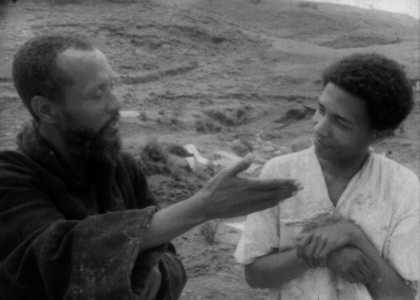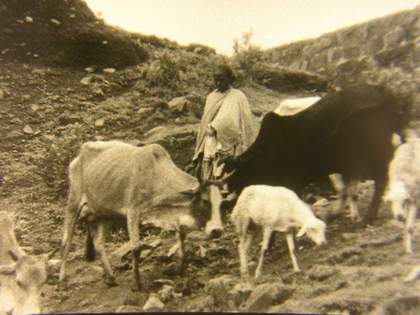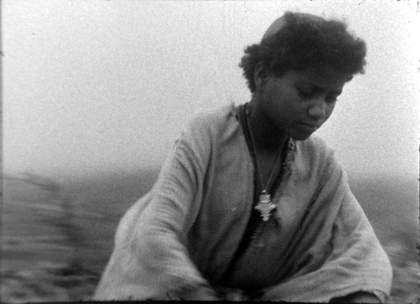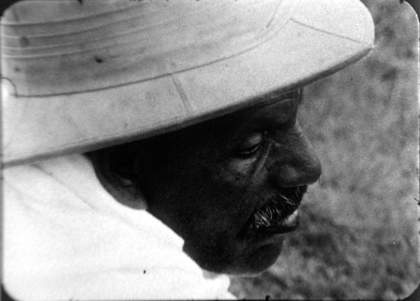Harvest: 3,000 Years / Mirt Sost Shi Amit
Haile Gerima, Ethiopia 1976, 16mm, black and white, 150 min
Harvest: 3,000 Years is an epic picture of peasant life in contemporary Ethiopia and a milestone in African cinema. Centred on farmers’ resistance to feudal land owners, the film blends oral narrative traditions with revolutionary film form. Gerima's first feature set in Africa is a passionate and personal work, as he has stated the film 'shows you the actual footprints of my youth, of where I grew up with my father and the rest of my family.' Produced in the midst of civil war in Ethiopia following the overthrow of Haile Selassie, the film is a post-colonial allegory of class exploitation and tribute to the collective struggle for justice of an entire nation. The masterful film tells its story as if it were a documentary observing the working life of its characters. Filmed in Amharic with local cast, the film shifts between observed scenes of from the farmers’ lives to polemical characterisation of corrupt colonialists and political speeches in order to tell its impassioned story of collective resistance. Released in the same year as Bush Mama, the two films led critics to celebrate the arrival of a major new film-maker, creator of a distinct new Black cinema sensitive both to the liberation movement in African and the political climate in America.
The Diary of an African Nun
Julie Dash, USA 1977, 16mm, black and white, 15 min
Newly restored print courtesy of the UCLA Film & Television Archive
An African nun is consumed by doubt as she lies in the convent and listens to the rhythmic, beckoning drums of her village. Julie Dash's early film reworks a short story by Alice Walker about a Ugandan nun's crisis of faith exploring the divisions between culture and spirituality. Shot in stark black and white with striking compositions the film features an intense performance by Barbara O. Jones (also seen in Bush Mama) exploring legacy of British colonial period.





